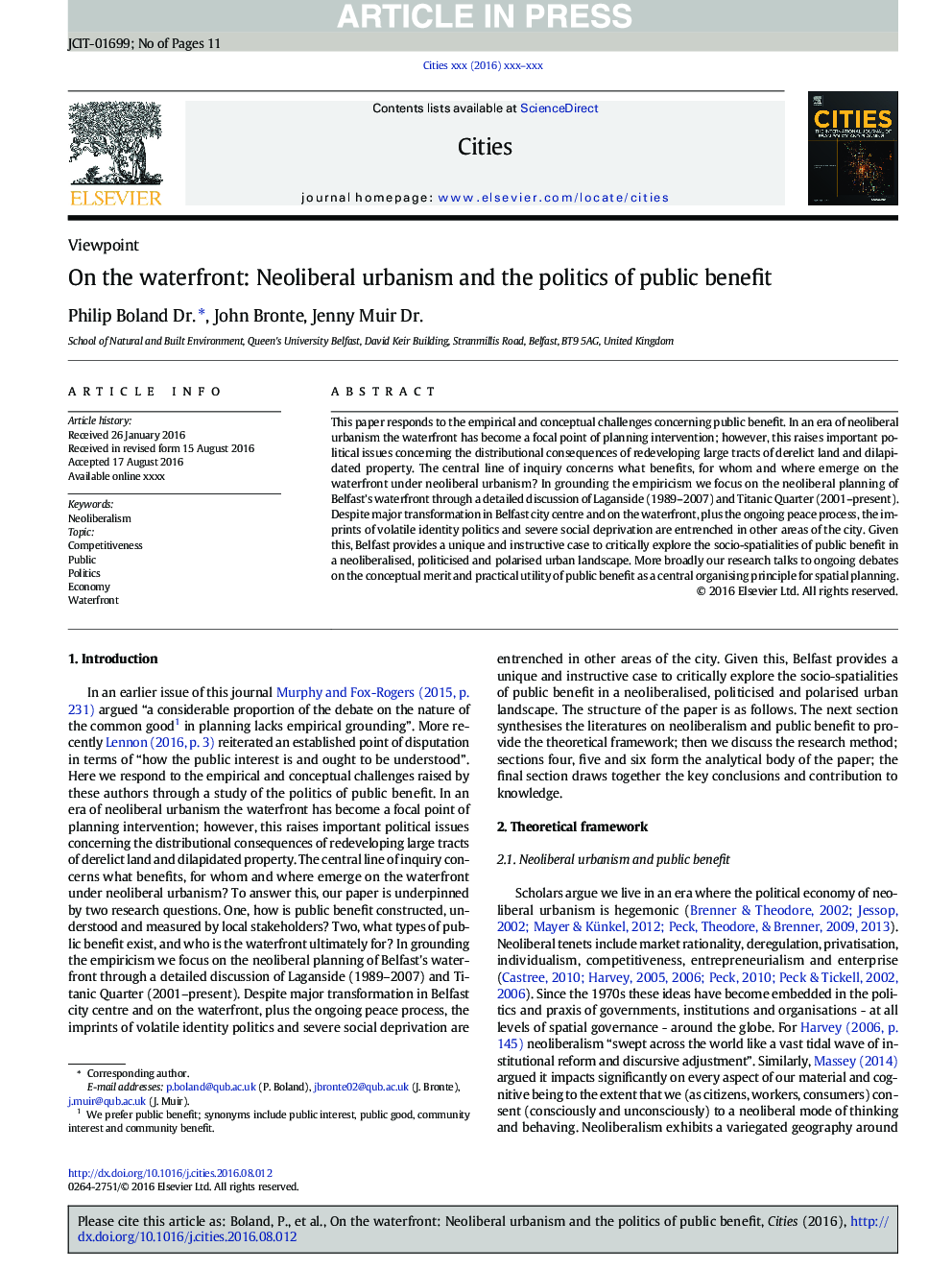| Article ID | Journal | Published Year | Pages | File Type |
|---|---|---|---|---|
| 5108105 | Cities | 2017 | 11 Pages |
Abstract
This paper responds to the empirical and conceptual challenges concerning public benefit. In an era of neoliberal urbanism the waterfront has become a focal point of planning intervention; however, this raises important political issues concerning the distributional consequences of redeveloping large tracts of derelict land and dilapidated property. The central line of inquiry concerns what benefits, for whom and where emerge on the waterfront under neoliberal urbanism? In grounding the empiricism we focus on the neoliberal planning of Belfast's waterfront through a detailed discussion of Laganside (1989-2007) and Titanic Quarter (2001-present). Despite major transformation in Belfast city centre and on the waterfront, plus the ongoing peace process, the imprints of volatile identity politics and severe social deprivation are entrenched in other areas of the city. Given this, Belfast provides a unique and instructive case to critically explore the socio-spatialities of public benefit in a neoliberalised, politicised and polarised urban landscape. More broadly our research talks to ongoing debates on the conceptual merit and practical utility of public benefit as a central organising principle for spatial planning.
Related Topics
Social Sciences and Humanities
Business, Management and Accounting
Tourism, Leisure and Hospitality Management
Authors
Philip Dr., John Bronte, Jenny Dr.,
